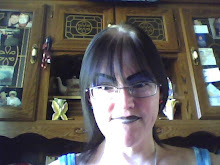Repeated trauma in childhood can form and deform the personality.(TaR) The person in an abusive environment must learn to adapt in finding ways to feel security, trust, safety, and control. "Unable to care for or protect herself, she must compensate for the failures of adult care and protection with the only means at her disposal, an immature system of psychological defenses."(TaR) Childhood abuse creates extraordinary capacities, which are both destructive as well as creative. It enables abnormal consciousness states to where the normal relations to mind, body, imagination, reality, etc., no longer hold their continuity. This can produce an array of symptoms, "both somatic and psychological."(TaR)
Many sufferers of this trauma experience disturbed intimate relationships, depression, suicidal thoughts/actions, promescuity(adolescence), troubled personality issues, trust issues, fear, PTSD, developmental issues, nightmares, and many other issues.
"Survivors [of childhood abuse/trauma] describe a characteristic pattern of totalitarian control, enforced by means of violence or death threats, capricious enforcement of petty rules, intermittent rewards, and destruction of all competing relationships through isolation, secrecy, and betrayal."(TaR)
many people also describe a fear of death, which could be caused by childhood trauma of family members, or pets being abused or threatened. Survivors of childhood trauma and abuse also tend to have a sense of helplessness.
Children that live in an environment that is abusive develop "extraordinary abilities to scan for warning signs of attack."(TaP) They learn body language, tones of voice, facial gestures and expressions. This becomes "highly automatic" and happens mostly outside of the child's conscious awareness. Usually the child adapts by avoiding the abuser or the abusive situation altogether, as often as possible. If this does not work, then the child will tend to please the abuser(s) by being obedient and not creating anything that would cause an issue. "Many develop the belief that their abusers have absolute or even supernatural powers, can read their thoughts, and can control their lives entirely."(TaP) These children try extra hard to be "good".
Children in abusive or traumatic situations tend to be isolated from not only family members, but also from the larger social world.
** This information was compiled via "Trauma and Recovery", by Judith Herman, M.D.**
The fact is, there is so much more to this issue, I cannot recommend enough reading this book. It is compelling, unbelievably captivating, and also accurate. There is more that needs to be discussed on this issue, as well as recovery options and coping skills, which will be discussed further. This is just a primer on the issue of Traumatic Disorders, regarding the issue of child abuse. This issue is so terribly horrifying, so completely upsetting, and very distressing, that I feel it necessary to discuss this issue in segments, rather than all at once. I personally have not suffered from childhood abuse or trauma, however, am close to some who have. This issue, if you have experienced such trauma or know of someone who has, is diffu=icult, at best, to discuss, especially in one sitting.
There will be further discussion on this issue, and there will be discussion on RECOVERY from these traumas. Now that you know a little more in depth the psychological issues surrounding childhood trauma, we can further discuss the issue, as well as redcovery, in future segments.
Thank you for reading, and as always, please feel free to comment, email or post your questions...
Tuesday, January 5, 2010
Subscribe to:
Post Comments (Atom)


No comments:
Post a Comment